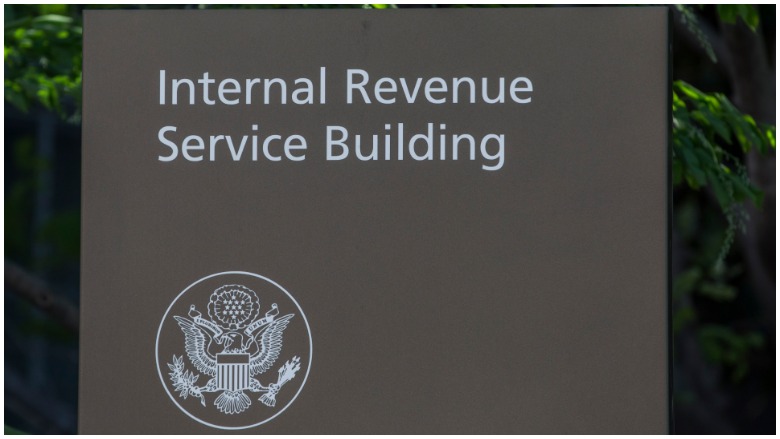
Getty Could a second stimulus check be on its way? Get the details here.
The IRS announced Monday that roughly 50,000 Americans who had some or all of their stimulus check payment withheld to pay a spouse’s past-due child support will receive make-up checks.
The Washington Post first reported in April that some Americans had not received the full amount for which they were eligible and some parents had not received the $500 checks for their dependents.
Here’s what you need to know:
Stimulus Checks Were Originally Subject to Garnishment by Debt Collectors
The IRS had previously warned recipients that their payments were vulnerable to private debt collectors, but this warning did not mention spouses. Back in May, CBS News reported that “anyone with a judgment against them for credit-card debt, medical debt or any other kind of private debt can lose their stimulus money to a debt collector. The CARES Act made clear that the stimulus checks were not subject to most state and federal debt, but did not address the issue of private debt that includes everything from doctor bills to education loans.”
Now, the IRS is allowing people whose checks were docked, or who didn’t receive a payment for their dependent because of a spouse’s debt, a second chance at their stimulus checks.
The IRS addressed this in question 31 of its FAQs on the stimulus checks:
The IRS is aware that in some instances a portion of the payment sent to a spouse who filed an injured spouse claim with his or her 2019 tax return (or 2018 tax return if no 2019 tax return has been filed) has been offset by the non-injured spouse’s past-due child support. The IRS is working with the Bureau of Fiscal Service and the U.S. Department of Health and Human Services, Office of Child Support Enforcement, to resolve this issue as quickly as possible. If you filed an injured spouse claim with your return and are impacted by this issue, you do not need to take any action. The injured spouse will receive their unpaid half of the total payment when the issue is resolved. We apologize for any inconvenience this may have caused.
The IRS said it reopened the registration period for a short window of time – August 15 to September 30 – for recipients of various federal benefits, including Social Security and Veterans’ Affairs.
Checks will be mailed out to those who submitted an “Injured Spouse Allocation” or Form 8379, according to CBS News. The IRS also said it was working on a way to assist those who had not yet filed a Form 8379.
The government tax agency has urged people to “Use the Non-Filers tool by September 30 if you have not already given us your qualifying child’s information to get a $500 catch-up payment.” More information on the non-filers tool is available on the IRS website.
The IRS Is Also Behind on Several Payments, According to Lawmakers
A letter from House Ways and Means Chairman Richard Neal and Senator Ron Wyden in late July reported the IRS had failed to send out 30 to 35 million economic impact payments in June, and between June 3 and July 22 only distributed 1.5 million, meaning that there were still some 28.5 to 33.5 million undistributed economic impact payments.
The letter also provided a scathing review of IRS call centers, reporting that only 5% of callers were able to speak with a live person:
… As of July 10, the EIP phone line had received a staggering 15.4 million calls. Of these callers, more than 14 million received an automated recording and almost 50,000 had their calls dropped. Sadly, only 800,000—5% of all callers—were able to speak with IRS staff who had access to taxpayer-specific data after waiting an average of 36 minutes on hold. When each call represents a family that has not received the help they were promised, the IRS must strive to do better.
The letter also noted that there were nearly 500,000 people “who did not receive payment for dependents they registered on the non-filer portal” because they had “their EIPs erroneously offset by Treasury’s Bureau of the Fiscal Service.”
READ NEXT: Nearly 14 million Americans Could Receive Tax Refund Interest Checks